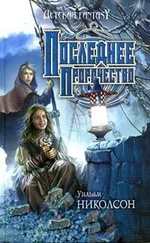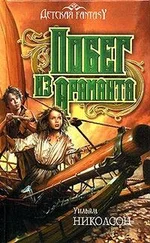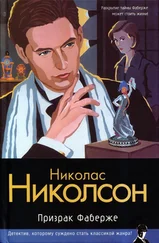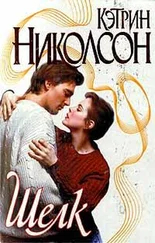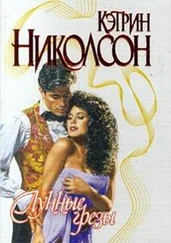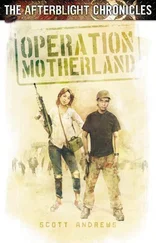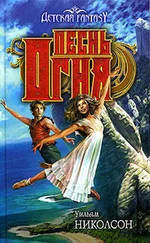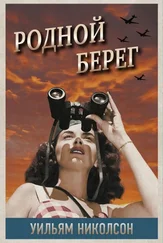After they’ve eaten M. de Nabant rises, and with the same air he has projected throughout, that this is the way everything must be, he says to Ed, ‘Maintenant nous allons visiter le vignoble.’
His moustached friend does not accompany them on their tour of the vineyard. Ed learns that his name is Vivier, that he is a scholar and a historian, and that he studied long ago at Oxford University.
The vines on closer inspection turn out to be extremely well maintained. The tiny green berries are just beginning to form. In all, the domaine extends to a little under five hectares, and produces ten thousand bottles a year.
Ed discusses quantities and prices and means of transport. He proposes an initial purchase from last year’s bottling of ten cases, to test the market. The price is so low he finds himself suggesting a higher figure, which M. de Nabant accepts without comment.
On their return to the house, Ed is left by his host in the company of his silent friend while he searches out his account books.
‘I understand you studied at Oxford,’ Ed says in English.
The old man nods, and suddenly smiles a sweet smile that makes the ends of his moustache quiver.
‘Is our local wine to your liking?’
He speaks softly and distinctly, with a charming accent.
‘Very much,’ says Ed.
‘You are a long way from home.’
‘I go where my business takes me,’ says Ed.
M. Vivier studies him with an intent gaze.
‘You have no need to travel so far to find good wine,’ he says. ‘The English are usually content to stop at Bordeaux.’
‘Your prices are lower,’ says Ed.
M. Vivier nods. Then after a pause he says, ‘Are you aware that you are in the land of the bons hommes ?’
‘No,’ says Ed. ‘Who are the bons hommes ?’
‘Also called the Cathars.’
‘Yes, of course,’ says Ed.
Here in the Aude, as he knows very well, he’s deep in what was once Cathar country: Carcassonne, Montségur, Albi. They say twenty thousand heretics were massacred in the siege of Béziers. But this is all ancient history.
‘I haven’t heard Cathars called bons hommes before,’ Ed says.
‘It was their own name for themselves,’ says M. Vivier. ‘They are a much misunderstood sect.’
M. de Nabant re-enters with his account book.
‘They held heretical beliefs, I seem to remember,’ Ed says. ‘The pope launched a crusade against them.’
‘That is so. May I ask, do you subscribe to a faith yourself?’
‘I was raised a Catholic,’ says Ed. ‘But I’ve rather fallen away, I’m afraid.’
‘Fallen away? You no longer believe?’
‘I no longer believe.’
M. de Nabant, unable to follow the conversation in English, speaks rapidly to his friend in the local dialect. His friend replies, also in dialect. Then he turns to Ed.
‘He tells me you have come to buy wine,’ he says. ‘I am not to bore you with dangerous nonsense from the past.’
After the wine and the music and the sunny tour of the vines, Ed finds himself in a mellow state of mind.
‘What is this dangerous nonsense?’
‘It is the creed of the bons hommes ,’ says M. Vivier. ‘My own special area of study.’
M. de Nabant throws up his hands, as if giving up on his attempt to control his friend. He lays down his account book and reaches down to stroke his dogs.
‘May I presume to ask,’ says M. Vivier to Ed, ‘why you no longer believe? Is it perhaps because you question how a good God could make an evil world?’
‘Something like that,’ says Ed.
‘But you don’t enquire further. You don’t take the next step, obvious though it is.’
‘I’m sorry,’ says Ed. ‘I seem to have missed it.’
‘That this evil world was made by an evil God.’
Ed smiles, amused by what could indeed be called an obvious step.
‘Ah, yes. That would follow.’
‘Many things follow, once you open your mind. This world is a prison. In our hearts we know this is not where we belong. We seek freedom, sir. You seek freedom.’
‘I’d gladly seek freedom,’ says Ed, ‘if I knew where to find it.’
‘You do know. You have in you the divine spark. There is only freedom in the spirit.’
‘It seems you know more about me than I know about myself.’
M. Vivier takes this as a rebuke.
‘Forgive me. As my friend will tell you, I can forget my good manners once launched on this subject. The English care greatly about good manners.’
‘Not me,’ says Ed. ‘I’m much more interested in this evil God.’
The little man is gratified.
‘You are not shocked?’
‘Not at all.’
‘Then allow me to go further. All men have a natural instinct to look for meaning in their lives. We crave meaning, and love, and order. You too, perhaps?’
‘Me too, perhaps,’ says Ed.
‘And do you find meaning, and love, and order?’
‘No.’
‘Of course not. You live in an evil world, made by an evil God. You are a bon homme in a mauvais monde .’
M. de Nabant utters a low groan and rolls his eyes. Evidently he has witnessed this performance by his friend before.
‘I’m a good man?’ says Ed. ‘I’m a Cathar?’
‘Names are unimportant,’ says the old man. ‘Only the truth is important.’
‘And that truth is, that this world is evil?’
‘This world is created and ruled by the power the bons hommes call Rex Mundi. The king of the world.’
‘And this king of the world is evil?’
‘We know it,’ says the old man, ‘by his works. This world is evil. All matter is evil. Our bodies are evil. But our spirit seeks the good, which is love. It is this suffering of the spirit, trapped in the prison of the body, which causes mankind so much unhappiness.’
Ridiculous though this should be, Ed finds himself taking the little man’s words seriously. Partly it’s the absolute confidence with which that soft earnest voice speaks. Partly it’s because he seems to see into Ed’s own heart with such uncanny accuracy.
‘Do I understand,’ says Ed, ‘that you yourself follow this Cathar creed?’
‘No. I follow no creed. I am a historian. I study the beliefs of those who are long gone. But my mind is open.’
‘Did the Cathars have an answer? How did they seek to escape this trap?’
‘The bons hommes taught that we must renounce this world, and set our spirits free.’
‘How?’
‘Must I tell you how? If the body is the prison of the spirit, how is the spirit to go free?’
‘By death,’ says Ed.
‘The death of the body,’ says the old man. ‘The death of this world.’
‘And after death?’
‘After death is life.’
‘How do we know that?’
‘We know it because we have the divine spark in us. That is the source of our unhappiness. It is also our proof of eternal life.’
Ed is more struck by this than he cares to admit. For the first time he is being offered a version of existence that matches his own experience. The terror he feels, that he calls ‘the darkness’, is nothing more nor less than the world he lives in. The God who made it, in whom he could never believe, is an evil God. This he can believe all too readily. The pain he lives with every day is the longing to escape.
And yet surely this is all nonsense. Yet more superstition, cobbled together to meet man’s bottomless hunger for meaning in a meaningless world.
‘Why did the pope call the Cathars heretics?’ he says. ‘Why did they have to be exterminated?’
‘Why does power hate freedom? Need you even ask?’
‘Why did they call themselves bons hommes ?’
‘They believed themselves to be the true Christians. They believed the Roman Catholic church had become an abomination, and they were returning to the pure faith as preached by Jesus Christ. They sought no power, no glory. No hierarchy, no great churches. They wanted something that is very simple and very challenging. They wanted to be good.’
Читать дальше

